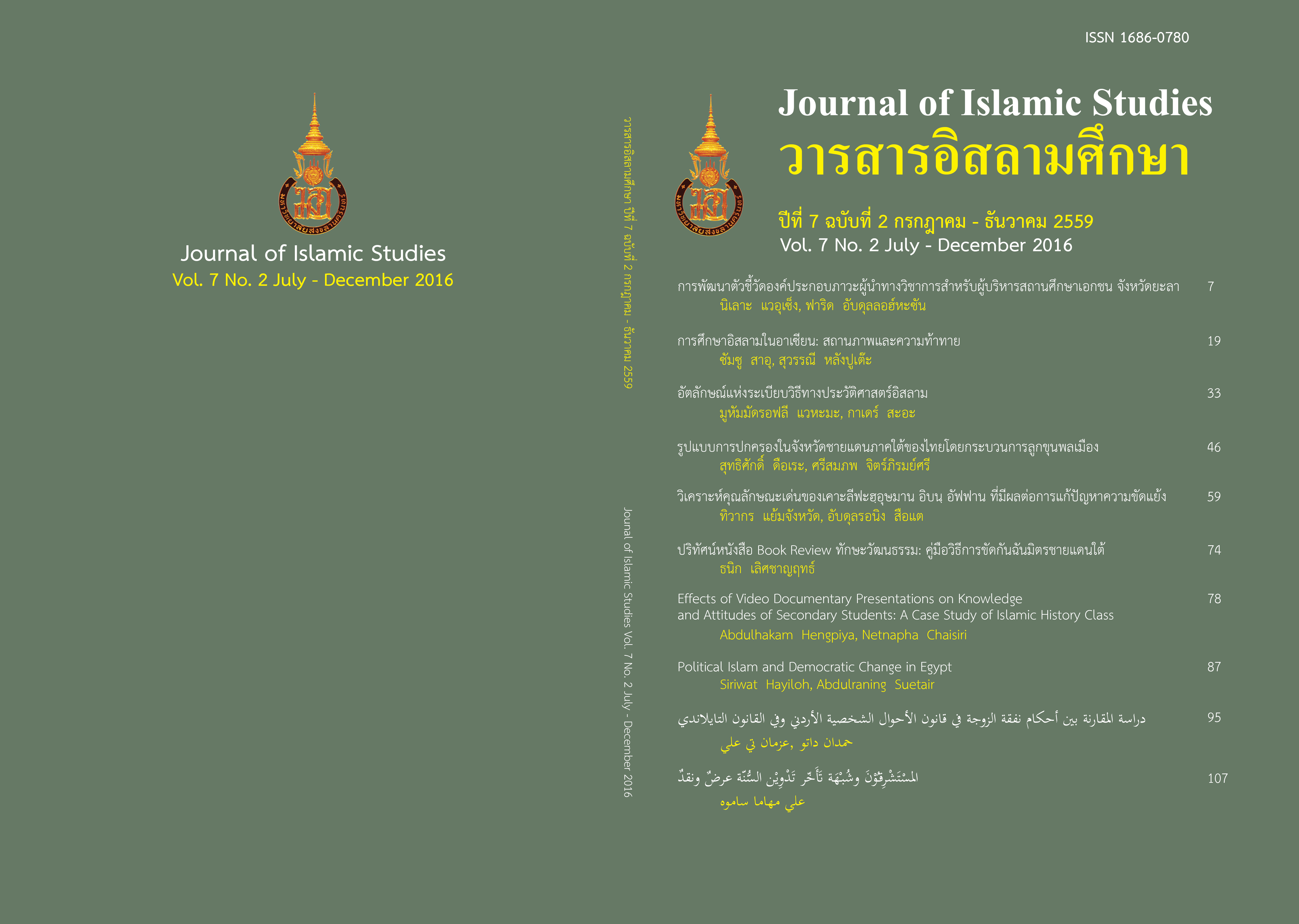The Administration Models in Deep South of Thailand by Citizens Jury Process
Keywords:
Administration Models, Deep South, Thailand, Citizen JuryAbstract
The unrest incident in Deep South of Thailand has plays an important problem issue in Thailand. There are many efforts to solve the problems in various ways. The special local administration in this area was presented in several forms. This study therefore aims to examine the existed local administrations and the special local models, which were proposed to help solving the conflict problem. The “Citizens Jury”, which is a process of deliberative democracy, was applied to support a participatory process. The process to bring about the deliberative democracy in this research has comprised of two phases. The first phase is to design the whole processes under the supervision of the advisory committee, organized from experts who has significant roles from various sectors of the southernmost provinces. Then, the researchers randomly select jurors or representatives from the civil society organizations to deliberate the forms of local government. The second phase involved hearings and discussions of the jurors. The jury board listened and asked questions about the various local administration models from witnesses, who were experts in his/her own model. Later, the free debates and discusses had led to conclusions about the appropriate form of the local government in this conflict area. The interesting finding obtained from the recommendations of the citizens jury about the suitable form of the local government is a proposal to dissolve all regional administration except for the military, finance and foreign affairs. The rest remains only the local government. Moreover, the governor should be elected by the local people. The candidates are to be scanned by the committees, who are representing all sectors before the elections. This administration will be held in two levels: namely overall level and provincial level. The overall level is covering three provinces, Pattani Yala Narathiwat and 4 districts of Songkla. There is elected Meta-Governor. Additionally, there are still 4 provincial governors for the provincial level, in term of Pattani Yala Narathiwat including a new province, a collection of 4 districts of Songkla.
References
ศรีสมภพ จิตรภิรมย์ศรี และสุกรี หลังปูเต๊ะ. 2551. โครงการศึกษาการปกครองท้องถิ่นในจังหวัดที่มีหลายชาติพันธุ์: กรณีศึกษาจังหวัดปัตตานี ยะลาและนราธิวาส เสนอต่อศูนย์ศึกษาและพัฒนาสันติวิธี มหาวิทยาลัยมหิดล.
สถานวิจัยความขัดแย้งและความหลากหลายทางวัฒนธรรมภาคใต้. 2554. โครงการศึกษาพัฒนาต้นแบบการบริหารรัฐกิจและการปกครองแบบพิเศษจังหวัดชายแดนภาคใต้ โดยวิธีการทดสอบกับภาคประชาสังคมและประชาชนทั่วไป เสนอต่อโครงการเสริมสร้างความเข้มแข็งและการมีส่วนร่วมในภาคใต้ของประเทศไทย
Kurian, George Thomas. 2011. The encyclopedia of political science. Washington: CQ Press.
Srisompob and Duncan McCargo. “A Ministry for the South: New Governance Proposals for Thailand’s Southern Region,” Contemporary Southeast Asia, Volume 30, Number 3 (December 2008), 403-428.
Wakeford, Tom. 2011. Citizens Juries: a radical alternative for social research. Department of Sociology, University of Surrey 2002 Available from http;//sru.soc.surrey.ac.uk/SRU37.html. (Accessed July 3, 2011).
Downloads
Published
How to Cite
Issue
Section
License
All articles Published in The Journal of Islamic Studies are author’s opinions, and not the responsibility of the Faculty of Islamic Sciences nor the editorial board. However any citation should be referred to the journal.


